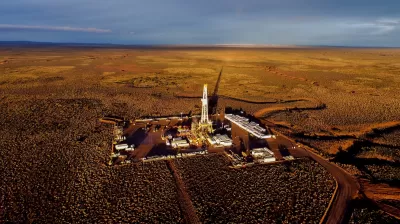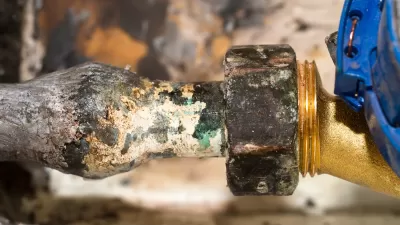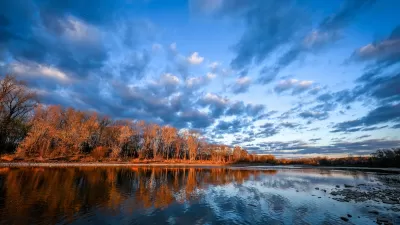Because toxic chemicals used in fracking can contaminate local water supplies, residents in states that require companies to disclose their materials are more likely to increase their bottled water consumption.

A study of jurisdictions that require fracking companies to disclose the chemicals they use reveals that residents tend to take more precautions to avoid potentially contaminated water when they are made aware of the risks, reports Áine Doris in Chicago Booth Review.
Although the U.S. Environmental Protection Agency (EPA) exempts fracking from the Safe Drinking Water Act, eighteen states require fracking operations to disclose the toxic chemicals they use. “The researchers find that those disclosures prompted residents of affected areas to take ‘defensive measures’ such as buying bottled water.”
The study found a 13 percent average increase in the consumption of bottled water between January 2006 and December 2019, “an indication that households responded to the public-information programs and took proactive measures to mitigate their risks and exposure to toxins.” Consumption rose the most in counties with full disclosure of toxic chemicals, but grew by almost the same amount in places where state laws allow companies to withhold some chemicals as ‘trade secrets.’
Ultimately, the study concludes that environmental disclosure programs can drive meaningful change in people’s behavior and risk response.
FULL STORY: When Fracking Chemicals Are Disclosed, Consumers Take Note

Alabama: Trump Terminates Settlements for Black Communities Harmed By Raw Sewage
Trump deemed the landmark civil rights agreement “illegal DEI and environmental justice policy.”

Planetizen Federal Action Tracker
A weekly monitor of how Trump’s orders and actions are impacting planners and planning in America.

The 120 Year Old Tiny Home Villages That Sheltered San Francisco’s Earthquake Refugees
More than a century ago, San Francisco mobilized to house thousands of residents displaced by the 1906 earthquake. Could their strategy offer a model for the present?

Ken Jennings Launches Transit Web Series
The Jeopardy champ wants you to ride public transit.

BLM To Rescind Public Lands Rule
The change will downgrade conservation, once again putting federal land at risk for mining and other extractive uses.

Indy Neighborhood Group Builds Temporary Multi-Use Path
Community members, aided in part by funding from the city, repurposed a vehicle lane to create a protected bike and pedestrian path for the summer season.
Urban Design for Planners 1: Software Tools
This six-course series explores essential urban design concepts using open source software and equips planners with the tools they need to participate fully in the urban design process.
Planning for Universal Design
Learn the tools for implementing Universal Design in planning regulations.
Clanton & Associates, Inc.
Jessamine County Fiscal Court
Institute for Housing and Urban Development Studies (IHS)
City of Grandview
Harvard GSD Executive Education
Toledo-Lucas County Plan Commissions
Salt Lake City
NYU Wagner Graduate School of Public Service





























